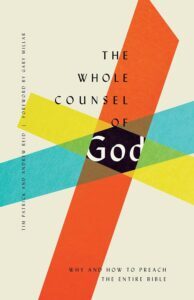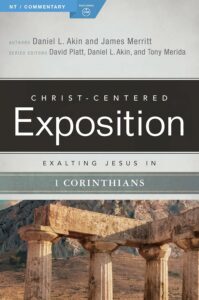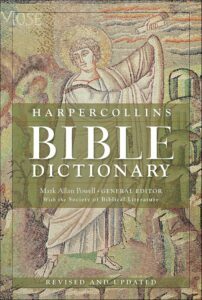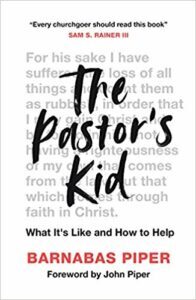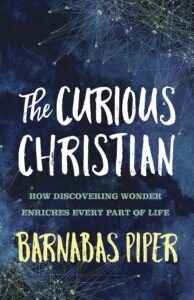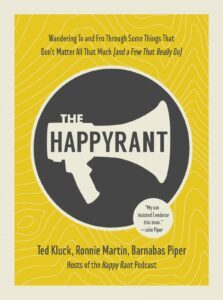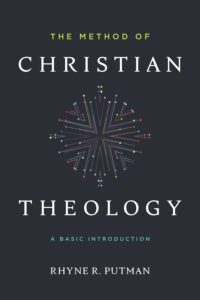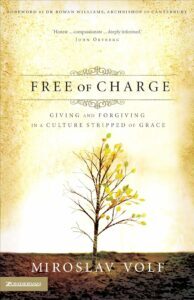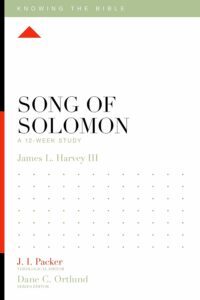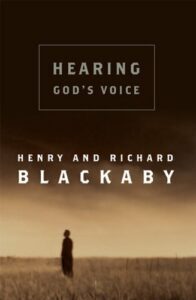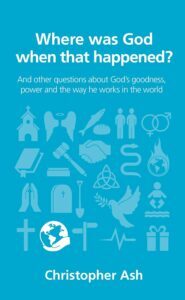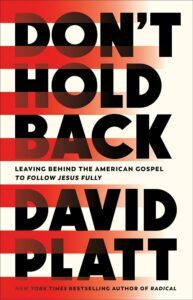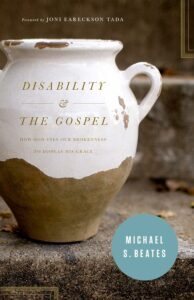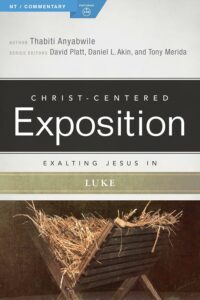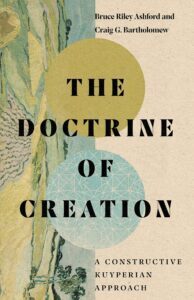Barnabas Piper's Blog, page 22
July 8, 2024
Praise the Lord
“Praise the Lord, O my soul” (Psalm 146:1)
Where does praise come from? Most of the time, it’s a response to something that brings us joy. I praise the beauty of my wife or the efforts of my children. We burst forth in praise when a musician plays a magnificent solo, or an athlete makes a highlight play. And in each of these instances, we don’t even really decide to praise–we just respond.
But our hearts don’t react to God nearly so naturally or joyfully. Because of our sinful natures, praising God often feels unnatural. This is why we need the words of Psalm 146:1 so much:
Praise the Lord!
Praise the Lord, O my soul!
Who is the psalmist talking to? Himself! He is reminding himself, commanding himself, to do what is absolutely right but doesn’t come naturally. But this isn’t a mantra or a gritting-his-teeth force-of-will thing. He goes on to remind himself whyGod is worthy of praise: he is our helper, he is creator, he is just, he is generous, he is merciful, he is a rescuer, he cares for the lowly, and he will reign forever.
We need this example because our hearts are slow to praise God. First, remind yourself to praise. Then remember all the reasons God is worthy of praise. Then you will be ready to respond in praise.
I originally wrote this post for my church, Immanuel Nashville, in our Daily Pulse email. If you want encouragement from God’s word delivered Monday thru Friday to your inbox, I encourage you to subscribe!
July 1, 2024
He Who is In You
“He who is in you is greater than he who is in the world” (1 John 4:4).
Sometimes doesn’t it feel like the darkness is closing in, like the world is too evil to handle? There is so much injustice, so much anger, so much division, and so much violence. It all feels oppressive and heavy. It really is too much for us. We weren’t made to handle this much awareness of this much crisis. Friends, this is when we must remember and cling to these words from 1 John 4:4: “He who is in you is greater than he who is in the world.”
Satan is the prince of this world, and he does wreak havoc. He is far more powerful than you or me. He is full of hate and wants to see evil and darkness thrive. So why do we not fear and tremble? Because of who is in us, the Spirit of God! He is the very presence and power of Jesus Christ in you and me. And Christ is Lord of all. He is infinitely greater than Satan and all his forces.
Jesus already won the war, but Satan is still scrapping and fighting. He is on borrowed time and is no match for the victorious King who dwells in every believer. What an assurance for all who follow Jesus! In the words of Martin Luther:
The Prince of Darkness grim,
We tremble not for him;
His rage we can endure,
For lo! his doom is sure,
One little word shall fell him.
I originally wrote this post for my church, Immanuel Nashville, in our Daily Pulse email. If you want encouragement from God’s word delivered Monday thru Friday to your inbox, I encourage you to subscribe!
June 28, 2024
3 Things I like This Week – June 28
Each week (give or take one or two here and there) I share three things I like – It could be a book, a movie, a podcast, an album, a photo, an article, a restaurant, a food item, a beverage, or anything else I simply enjoy and think you might too. You can find a whole pile of things, especially books, I like and recommend HERE.
1. Quentin Walston’s “Retro Future” Album I love Jazz. I love Jazz classics and Jazz standards. So to find a contemporary jazz musician who loves, respects, and can play the fire out of the classics and standards with respect for the masters is a delight. I accidentally stumbled across Quentin Walston on Instagram (who says social media is all bad?) and immediately loved his posts. He is educational about how Jazz works. He highlights the particular styles and skills of genius musicians. He is a pianist, which happens to be my favorite jazz instrument. And he clearly loves the music. Now Walston has released an album of his own, mostly covering some standards and classics in homage to the greats. It is delightful. If you are a jazz fan you’ll appreciate it. If you are new to jazz it is a great jumping in point.
I love Jazz. I love Jazz classics and Jazz standards. So to find a contemporary jazz musician who loves, respects, and can play the fire out of the classics and standards with respect for the masters is a delight. I accidentally stumbled across Quentin Walston on Instagram (who says social media is all bad?) and immediately loved his posts. He is educational about how Jazz works. He highlights the particular styles and skills of genius musicians. He is a pianist, which happens to be my favorite jazz instrument. And he clearly loves the music. Now Walston has released an album of his own, mostly covering some standards and classics in homage to the greats. It is delightful. If you are a jazz fan you’ll appreciate it. If you are new to jazz it is a great jumping in point.
2. Bryce Harper’s Swing
Over my lifetimes as a baseball fan there have been a handful of players whose swings have captivated me with some combination of savagery, grace, force, and abandon: Alfonso Soriano, Nelson Cruz, Eric Davis, Mo Vaughn, and others. (Royce Lewis of my very own Minnesota Twins is vying for a place on this list too.) These aren’t the most graceful swings or technically perfect ones. They are to baseball swings what Mike Tyson was to boxing: ferocity, power, speed and wow. Today, the leader in the clubhouse is Bryce Harper. He isn’t my favorite player. I care nothing about the Phillies. But wow, that swing is the next in a long legacy of ferocious hammers.
3. Tolkien Audio Books Read by Andy Serkis
 I am a white reformed Christian man, so theologically, genetically, culturally, and morally I am obliged to love The Lord of the Rings and other writings by John Ronald Reuel Tolkien. And I truly do. I first encountered the hobbit as an audio book on cassette when I was in elementary school and immediately fell in love. I read the Lord of the Rings trilogy for the first time in middle school and many times since. I have even dabbled in other Tolkien lore (The Silmarillion, etc.), albeit with less enthusiasm or enjoyment. For decades the available audiobooks for Tolkien’s work were pretty awful–flat British narrator, tinny audio, and at points you could even hear pages turning and doors opening and closing. So when I heard that a new edition was being released with Andy Serkis as the narrator I was positively giddy. For those who don’t know, Serkis is the actor who so brilliantly played and voiced Gollum in the movies. He does a masterful job narrating,. voicing characters, and even bringing the admittedly long and cumbersome epic poems to life throughout The Hobbit, The Fellowship of the Ring, The Two Towers, The Return of the King, and even The Silmarillion. For any Tolkien fan these audiobooks are a must-have, and for anyone looking for a non-intimidating way to try out these books you have found it.
I am a white reformed Christian man, so theologically, genetically, culturally, and morally I am obliged to love The Lord of the Rings and other writings by John Ronald Reuel Tolkien. And I truly do. I first encountered the hobbit as an audio book on cassette when I was in elementary school and immediately fell in love. I read the Lord of the Rings trilogy for the first time in middle school and many times since. I have even dabbled in other Tolkien lore (The Silmarillion, etc.), albeit with less enthusiasm or enjoyment. For decades the available audiobooks for Tolkien’s work were pretty awful–flat British narrator, tinny audio, and at points you could even hear pages turning and doors opening and closing. So when I heard that a new edition was being released with Andy Serkis as the narrator I was positively giddy. For those who don’t know, Serkis is the actor who so brilliantly played and voiced Gollum in the movies. He does a masterful job narrating,. voicing characters, and even bringing the admittedly long and cumbersome epic poems to life throughout The Hobbit, The Fellowship of the Ring, The Two Towers, The Return of the King, and even The Silmarillion. For any Tolkien fan these audiobooks are a must-have, and for anyone looking for a non-intimidating way to try out these books you have found it.
Kindle Deals for June 28
Some Kindle deals worth your mind and money today:
Brothers, We Are Not Professionals: A Plea to Pastors for Radical Ministry by John Piper – $4.99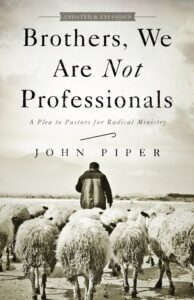
The Whole Counsel of God: Why and How to Preach the Entire Bible by Tim Patrick & Andrew Reid – $5.22
Exalting Jesus in 1 Corinthians (Christ-Centered Exposition Commentary) by Daniel Akin & James Merritt – $4.99
Harper Collins Bible Dictionary – $3.99
Eugenics and Other Evils: An Argument against the Scientifically Organized State by G.K. Chesterton – $2.99
Roots: The Saga of an American Family by Alex Haley – $4.99
Reporting War: How Foreign Correspondents Risked Capture, Torture and Death to Cover World War II by Ray Moseley – $2.99
MY BOOKS:The Pastor’s Kid: What It’s Like and How to Help – $2.99
The Curious Christian: How Discovering Wonder Enriches Every Part of Life – $4.99
These links are Amazon affiliate links.
June 27, 2024
30 Pieces of Writing Advice from C.S. Lewis
Whether you fell in love with C.S. Lewis through his Chronicles of Narnia, his collections of brilliant essays and radio addresses like The Weight of Glory or God in the Dock, or his numerous longer works it is undeniable that he was, unhyperbolically, one of the most brilliant thinkers and writers ever. He has shaped the minds and craft of innumerable Christian writers over the decades, and I number him among my greatest influences and inspirations. Here are 30 pieces of writing advice from the man himself, drawn from this wonderful collection, C.S. Lewis on Writing (and Writers). They are practical, inspiring, clever, and true–just as you would expect.
In writing don’t merely adjectives which merely tell us how you want us to feel about the thing you are describing. I mean, instead of telling us a thing was “terrible,” describe it so that we’ll be terrified. Don’t say it was “delightful”: make us say “delightful” when we’ve read the description. You see, all those words (horrifying, wonderful, hideous, exquisite) are only like saying to your readers, “Please, will you do your job for me?”
Don’t use words too big for the subject. Don’t say “infinitely” when you mean “very”: otherwise you’ll have no word left when you want to talk about something really infinite.
Write about what really interests you . . .if you are interested only in writing you will never be a writer, because you will have nothing to write about.
The shocking truth is that, while insincerity may be fatal to good writing, sincerity, of itself, never taught anyone to write well. It is a moral virtue, not a literary talent.
The greatest cause of verbicide is the fact that most people are obviously more anxious to express their approval and disapproval of things than to describe them.
Every thought can be expressed in a number of different ways: and style is the art of expressing a given thought in the most beautiful words and rhythms of words. . .thus by the power of style, what was nonsense becomes ineffably beautiful.
A plague on these moderns scrambling for what they call originality–like men trying to lift themselves off the earth by pulling at their own braces: as if by shutting their eyes to the work of the masters they were likely to create new things themselves.
No man who values originality will ever be original. But try to tell the truth as you see it, try to do any bit of work as well as it can be done for the work’s sake, and what men call originality will come through.
What you want is practice, practice, practice. It doesn’t matter what we write (at least that is my view) at our age, so long as we write continually as well as we can.
Poetry most often communicates emotions, not directly, but by creating imaginatively the grounds for those emotions. It therefore communicates something more than emotion; only by means of that something more does it communicate the emotion at all.
The more abstract the subject, the more our language should avoid unnecessary abstraction.
Adverse criticism should diagnose and exhibit faults, not abuse them.
Whenever you are fed up with life, start writing: ink is the great cure for all human ills, as I have found out long ago.
I am sure that some are born to write as trees are born to bear leaves: for these writing is a necessary mode of their own development. If the impulse to write survives the hope of success, then one is among these. If not, then the impulse was at best only pardonable vanity, and it will certainly disappear when the hope is withdrawn.
It certainly is my opinion that a book worth reading only in childhood is not worth reading even then.
Writing a book is much less like creation than it is like planting a garden or begetting a child: in all three cases we are only entering as one cause into a causal stream which works, so to speak, in its own way.
I don’t know what I mean until I see what I’ve said. In other words writing and thinking were a single process.
The re-reader is looking not for actual surprises (which can only come once) but for a certain surprisingness. The point has often been misunderstood. . .We do not enjoy a story fully at the first reading. Not till the curiosity, the sheer narrative lust, has been given its sop and laid asleep, are we at leisure to savor the real beauties. Till then, it is like wasting great wine on a ravenous natural thirst which merely wants cold wetness. The children understand this well when they ask for the same story over and over again, and in the same words.
Great subjects do not make great poems; usually, indeed, the reverse.
The critics who treat adult as a term of approval, instead of as a merely descriptive term, cannot be adult themselves. To be concerned about being grown up, to admire the grown-up because it is grown-up, to blush at the suspicion of being childish: these things are the mark childhood and adolescence.
When I was ten, I read fairy tales in secret and would have been ashamed if I had been found doing so. Now that I am fifty I read them openly. When I became a man I put away childish things, including the fear of childishness and the desire to be very grown up.
But surely arrested development consist not in refusing to lose old things but in failing to add new things? . . . A tree grows because it adds rings: a train doesn’t grow by leaving one station behind and puffing on to the next.
It would be much truer to say that fairy land arouses a longing for he knows not what. It stirs and troubles him (to his lifelong enrichment) with the dim sense of something beyond his reach and, far from dulling or emptying the actual world, gives it a new dimension of depth. He does not despise real woods because he has read of enchanted woods: the reading makes all real woods a little enchanted. This is a special kind of longing.
Since it is so likely that [children] will meet cruel enemies, let them at least have heard of brave knights and heroic courage.
I think it possible that by confining your child to blameless stories of child life in which nothing at all alarming ever happens, you would fail to banish the terrors, and would succeed in banishing all that can ennoble them or make them endurable. For in the fairy tales, side by side with the terrible figures, we find the immemorial comforters and protectors, the radiant ones: and the terrible figures are not merely terrible, but sublime. It would be nice of no little boy in bed, hearing, or thinking he hears, a sound, were ever at all frightened. But if he is going to be frightened, I think it better that he should think of giants and dragons than merely of burglars.
Whatever in art is not doing good is doing harm: no room for passengers. (In a good black-and-white drawing the areas of white paper are essential to the whole design, just as much as the lines. It is only in a child’s drawing that they’re merely blank paper.)
Every sentence should be tested on the tongue, to make sure that the sound of it has the hardness or softness, the swiftness or languor, which the meaning of it calls for.
It is very dangerous to write about a kind [of genre or style] you hate. Hatred obscures all distinctions.
I have come to the conviction that if you cannot translate your thoughts into uneducated language, then your thoughts were confused. Power to translate is the test of having really understood one’s own meaning.
You waste on calling me a liar and a hypocrite time you ought to have spent on refuting my position. Even if your main purpose was to gratify resentment, you have gone about it the wrong way. Any man would much rather be called names than proved wrong.
Kindle Deals for June 27
Some Kindle deals worth your mind and money today:
The Method of Christian Theology: A Basic Introduction by Rhyne Putnam – $4.99
Free of Charge: Giving and Forgiving in a Culture Stripped of Grace by Miroslav Volf – $1.99
Song of Solomon: A 12-Week Study (Knowing the Bible) by Dane Ortlund – $5.22
1–2 Chronicles: A 12-Week Study (Knowing the Bible) by James Duguid – $5.22
The Rest Is History: From Ancient Rome to Ronald Reagan—History’s Most Curious Questions, Answered by Tom Holland & Dominic Sandbrook – $3.99
Dictionary of Word Origins by Joseph T. Shipley – $2.99
The House at Pooh Corner: The Classic Edition by A.A. Milne – $1.99
The Man Who Knew Too Much by G.K. Chesterton – $.99
MY BOOKS:The Pastor’s Kid: What It’s Like and How to Help – $2.99
The Curious Christian: How Discovering Wonder Enriches Every Part of Life – $4.99
These links are Amazon affiliate links.
June 26, 2024
Kindle Deals for June 26
Some Kindle deals worth your mind and money today:
Hearing God’s Voice by Henry & Richard Blackaby – $4.99
Exalting Jesus in Matthew (Christ-Centered Exposition Commentary) by David Platt – $4.99
Where was God when that happened?: And other questions about God’s goodness, power and the way he works in the world by Christopher Ash – $2.99
Where the Red Fern Grows by Wilson Rawls – $2.99
Hank and Jim: The Fifty-Year Friendship of Henry Fonda and James Stewart by Scott Wyman – $1.99
MY BOOKS:The Pastor’s Kid: What It’s Like and How to Help – $2.99
The Curious Christian: How Discovering Wonder Enriches Every Part of Life – $4.99
These links are Amazon affiliate links.
June 25, 2024
Curious Curmudgeons Episodes 7 and 8 – The Purpose of Pain and Finding Your Own Faith
What happens when the unexpected storms of life turn your world upside down? Adam opens up about his harrowing experience with multiple lung collapses and surgeries during a time he least expected it. His story serves as a powerful reminder of how unplanned events can alter our life’s path, and how finding wisdom and comfort during these times can be transformative.
As we move forward, we delve into the raw and often painful journey of life after divorce. We candidly address the complex emotional aftermath, including reorienting one’s identity and decisions in the wake of such significant change.
We explore finding purpose amidst suffering, the significance of supportive relationships, and the importance of walking in obedience towards redemption. Psalm 138:8 becomes a cornerstone of comfort, emphasizing that God’s plans prevail even in the face of chronic illness and pain. We also highlight the critical role of community and friendships, urging listeners to focus on embodying the fruits of the spirit. Through poignant examples and heartfelt reflections, this episode offers hope and encouragement for anyone grappling with the unpredictable challenges life throws their way.
Listen to Episode 7What happens when faith becomes more than just a family tradition? Join us in the final episode of the Curious Curmudgeon podcast’s inaugural season, as we explore the profound journey of personal conviction in Christ. We’ll share Adam’s transformative experience at 16, shedding light on how to make faith truly personal and authentic. We also express our heartfelt gratitude for your unwavering support throughout our journey and invite you to share this episode with friends who might find solace and inspiration.
Navigate the intricate path of faith through periods of doubt and personal failure with us. Discover the transformative power of scripture, particularly a poignant verse from Mark 9, and learn how wise mentors and a supportive church community can be pivotal during times of spiritual deconstruction and reconstruction. Hear personal stories, including the lasting impact of a sixth-grade teacher’s humility and biblical wisdom, that have shaped our understanding of faith.
In our final segment, we explore the awakening to genuine faith and the significant impact of mentorship. Understand how encounters with authentic Christian living shift faith from fear-based to love-grounded. We also reminisce about our favorite quotable movies from our youth and share our frustration with podcast banter that often strays from the main topic. Thank you for journeying with us, and stay tuned for more exciting themes and topics in the next season!
Listen to Episode 8Kindle Deals for June 25
Some Kindle deals worth your mind and money today:
Who is Jesus? by Greg Gilbert – $4.04
Don’t Hold Back: Leaving Behind the American Gospel to Follow Jesus Fully by David Platt
12 Faithful Women: Portraits of Steadfast Endurance by Melissa Kruger & Kristen Wetherell – $5.49
Disability and the Gospel: How God Uses Our Brokenness to Display His Grace by Michael Beates – $3.99
Exalting Jesus in Luke (Christ-Centered Exposition Commentary) by Thabiti Anyabwile – $4.99
The Doctrine of Creation: A Constructive Kuyperian Approach by Bruce Ashford & Craig Bartholomew – $2.99
Wise Blood: A Novel by Flannery O’Connor – $2.99
South of Broad: A Novel by Pat Conroy – $1.99
Small Mercies: A Detective Mystery by Dennis Lehane – $2.99
MY BOOKS:The Pastor’s Kid: What It’s Like and How to Help – $2.99
The Curious Christian: How Discovering Wonder Enriches Every Part of Life – $4.99
These links are Amazon affiliate links.
June 24, 2024
Supernatural Togetherness in Christ
“I do not ask for these only, but also for those who will believe in me through their word, that they may all be one, just as you, Father, are in me, and I in you, that they also may be in us, so that the world may believe that you have sent me.” (John 17:21)
In John 17, Jesus prays what is often known as the “High Priestly Prayer,” in which he speaks to his Father on behalf of his disciples and the church through the ages—all those who would one day believe in him through the preaching of the gospel. (That’s right, Jesus prayed for you!)…He wants us to be one—that is, unified in him in the same way that he is unified with his Father. This isn’t something we can just commit to and make happen by best intentions and good hustle. But Jesus wouldn’t desire a thing for us that he doesn’t also make available to us. So there is a built-in promise here. This is a supernatural kind of togetherness, given to believers by the Holy Spirit. It is the kind of togetherness that isn’t defined by how we are similar to one another but rather that overcomes differences the world around us might see as insurmountable barriers. (Ephesians 2:11-22 explains and portrays this magnificently.) Jesus is promising that his Spirit will reside in his church and be our unifying, defining reality.
Jesus also makes clear that he wants us to know and show his love; he wants us to be with him. He is offering and promising a context of absolute, unhindered belonging in and through himself. And it is not the kind of belonging that is self-serving and exists solely so that we as individuals can have our needs met and find a place of comfort. Yes, the church is to be that, but it is to be that “so the world may know that [God] sent [Jesus].” Our togetherness, our belonging, is to be a public evidence and invitation to the transforming, freeing, life-giving, comforting presence of Jesus Christ.
An excerpt from my book Belong: Loving Your Church by Reflecting Christ to One Another (The Good Book Company, 2023).

